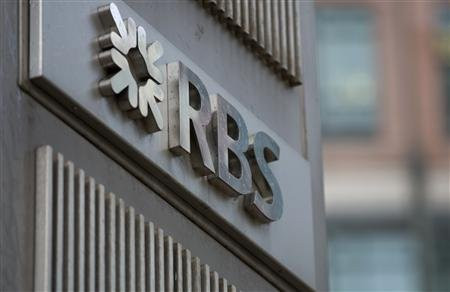Mis-Selling Derivatives Scandal: RBS Has Only Used 8% of Compensation and Admin Pot

The Royal Bank of Scotland has revealed that it has only utilised 8% of the total amount it has set aside to compensate victims for being mis-sold complex derivatives products as it reports billions of pounds worth of profit.
According to RBS' first half year results, the bank has only used £56m (€64m, $85m) out of a total £750m set aside for compensation and administrative costs related to the mis-selling of interest rate swap agreements (IRSA) to Britain's small-to-medium enterprises (SME).
The bank, which is 82% owned by the taxpayer, also revealed that it will not add any more money, at the moment, to the compensation fund after already earmarking £575m for client redress, and £125m for administrative expenses.
The last time the bank increased IRSA provisions was when it added £50m in the first quarter this year for extra administrative costs.
"The group continues to monitor the level of provision given the uncertainties over the number of transactions that will qualify for redress and the nature and cost of that redress," said RBS in a statement.
In June, a study by Bully-Banks revealed that banks mis-selling derivatives to Britain's small-to-medium enterprises has cost the economy £1.7bn in lost revenues to the Treasury, as well as, 400,000 jobs.
Bumper Profits
Meanwhile, the bank posted a pretax profit of £1.4bn in the six months to the end of June, compared with a loss of £1.7bn in the first half of 2012.
Although it has not increased the amount it is setting aside for mis-sold IRSA victims, it took an extra £185m provision hit the mis-selling of payment protection insurance. It's total bill for PPI claims now stands at £2.4bn.
Banks Not Delivering Redress?
RBS follows closely in, fellow state-owned bank, Lloyds Banking Group's footsteps for failing to add any more money to the compensation pot for IRSA victims.
IRSAs are contracts between a bank and its customer where typically one side pays a floating, or variable, rate of interest and receives a fixed rate of interest payments in exchange. They are used to hedge against extreme movements in market interest rates over a given period.
Companies that have seen the value of these products move against them as rates fell during the recession now owe banks crippling sums of money in interest payments each year.
But if the businesses want to cancel the contracts, they are faced with higher costs.
Lloyds Banking Group has already used up nearly a fifth of the total amount it has set aside to compensate British businesses for mis-selling them complex derivatives but did not add any more cash to the redress fund.
Lloyds, which is 39% owned by the state, confirmed it will not add any more money to the £400m in its results announcement on Thursday.
© Copyright IBTimes 2025. All rights reserved.






















